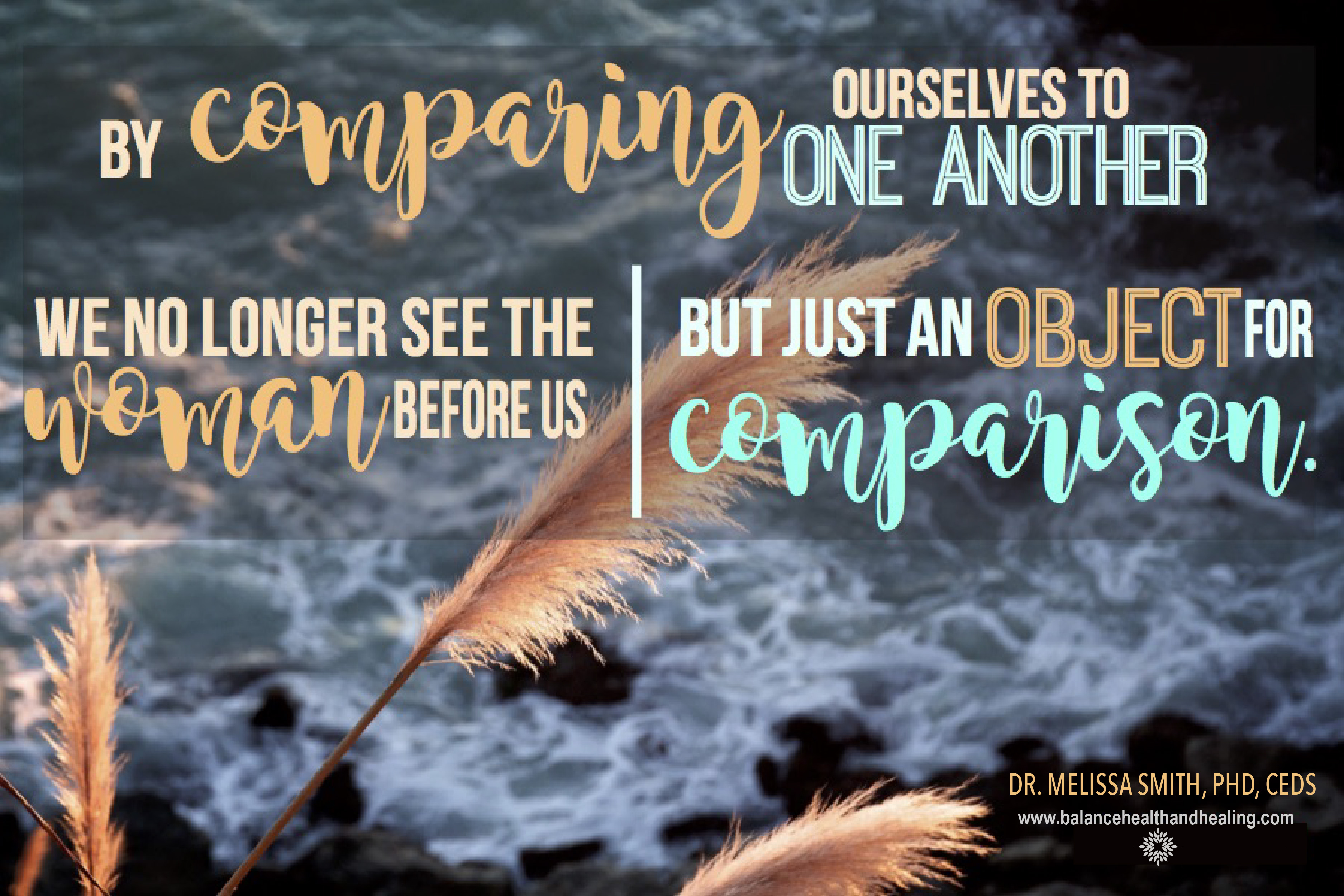We all do it. We watch other women at the grocery store, at the gym, at church. We scan their bodies, we criticize their clothing, we pick apart their make up. Why do we do this? Are we really this critical? Are we really this mean?
The tendency to compare can be a fairly natural thing—something that we hardly even notice—and yet it carries some unintended consequences not only for those we compare ourselves to, but also for ourselves.
Objectification
When we compare ourselves to others, we objectify the other. We turn someone else into an object for our own use. We turn another into an object to be judged, compared, evaluated. Why do we do this? Why do we care so much about what is happening with the woman in front of us at the grocery store or the fact that she should definitely not be wearing those mom jeans?
Sadly, as women we have been trained to evaluate ourselves, to look in the mirror and judge what we see. Have I lost weight? Does this dress make me look fat? It’s a great plague we as women have all fallen victim to. So we already know that we as women are pretty hard on ourselves, but why turn the critical eye to another?
We compare in an effort to make sense of our insecurities. We compare to try and understand if we are okay, if we fit in, if we will pass the bar of judgment. But of course, the bar is completely random, ever-changing, and is—without fail—unreasonable and unrealistic. And yet we persist.

So, in our efforts to understand ourselves, we must find other objects (i.e., women) to compare ourselves against. It’s a sick game of “Am I thinner?” “Do I look better?”
Loss of Connection
Objectification leads to a loss of connection. By comparing ourselves to one another, we no longer see the woman before us but just an object for comparison. We no longer have eyes to see the worry in her troubled eyes. We don’t have ears to hear how sweetly she talks to her child. By comparing ourselves to others, we lose the opportunity for empathy and ultimately for connection.
Ironically, when we turn a critical eye to another in comparison we fail to see the other person at all. In that moment they have become a tool of our own tortured attempts to feel better about ourselves.
Inequality
When we compare ourselves to those we know and care about, it is even more insidious. The process of comparison not only objectifies another, creates a barrier to connection, but it also creates inequality in relationships. Think about it. In the process of comparing, we make a determination that either the other is better in some way (thinner, prettier, smarter, you get the idea), or that we are. Either way someone loses. Comparison poisons a relationship, it creates an unequal playing field where connection no longer matters as much as our evaluations. Either we laud someone because we see her as somehow better (e.g., more in control, more self-disciplined) or we denigrate her because we have determined she has some failed in some cosmic way (e.g., those mom jeans though). It sounds harsh because it is.
Loss of Self-Respect
Comparing ourselves to others leads to a loss of self-respect. It’s impossible to feel good enough about yourself for long enough at the cost of another. It contradicts basic values of respect. We undermine our own values in the process of comparing and we become someone we no longer recognize. Over time, self-respect erodes and shame sets in. And sadly, this process creates an insidious cycle of comparing in order to feel better about ourselves, but which ultimately leads to feeling much worse about ourselves.
It’s not that as women we are just petty and snarky, though we are those things too much of the time. It’s that we’ve lost connection with ourselves, our inherent value, our meaning. As we value ourselves, we will stop comparing. There will be no need for it. It will take time to overcome, but we will begin to catch ourselves in our comparisons. We will redirect—but not with self-recrimination—with gentleness, with a reminder that these are not the ways we want to relate to others, a reminder that we are all—every last one of us—are doing the best we can. As we begin to see others again, we will reclaim ourselves.

